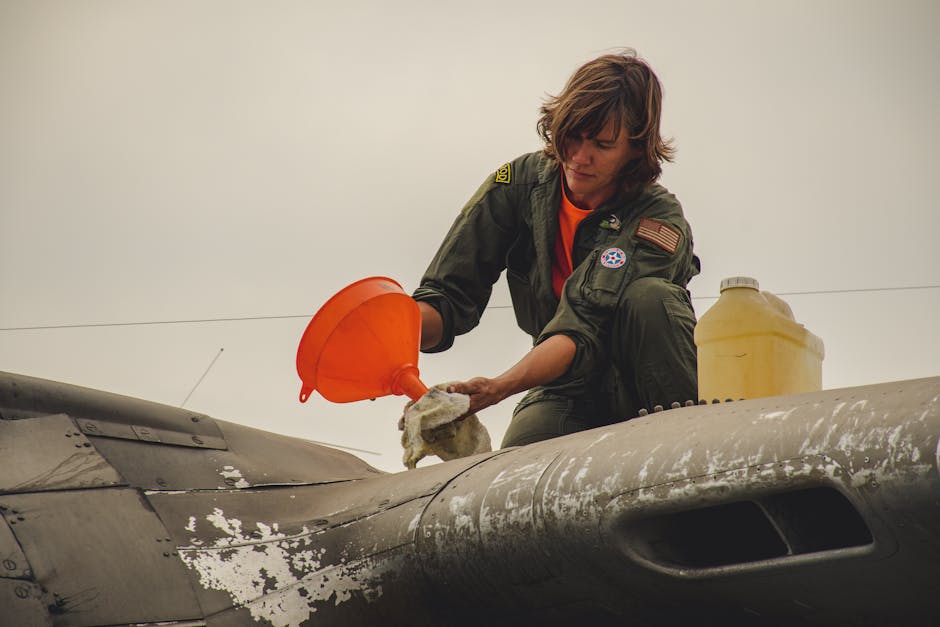Aviation Mechanic Salary: A Comprehensive Guide to Earnings, Career Paths, and Job Outlook
Soaring to new heights in your career often involves understanding the financial landscape. If you’re considering a career as an aviation mechanic, understanding the aviation mechanic salary is crucial. This comprehensive guide dives deep into the factors influencing earnings, potential career paths, and the overall job outlook for this in-demand profession.
Factors Influencing Aviation Mechanic Salary
The salary of an aviation mechanic isn’t a fixed number. Numerous factors contribute to the variation in earnings, ensuring a nuanced understanding is vital. These factors include:

- Experience: Entry-level aviation mechanics typically earn less than those with several years of experience under their belts. Experience translates to expertise, efficiency, and a greater capacity to handle complex repairs, resulting in higher pay.
- Location: Geographic location plays a significant role. Major metropolitan areas with a high concentration of airports and aviation companies often offer higher salaries due to increased demand and higher cost of living. Salaries in smaller towns or rural areas might be lower.
- Employer Type: The type of employer significantly impacts earnings. Major airlines, private aviation companies, military branches, and maintenance, repair, and overhaul (MRO) facilities all have different compensation structures. Airlines, for example, often have established salary scales, while smaller companies might offer more variable pay based on performance.
- Aircraft Type: Specialized skills in maintaining specific aircraft types, such as commercial jets versus smaller general aviation aircraft, can influence salary. Mechanics with expertise in newer, more technologically advanced aircraft are often in higher demand and earn more.
- Certifications and Licenses: Holding relevant certifications, like an Airframe and Powerplant (A&P) mechanic license from the Federal Aviation Administration (FAA) in the US (or equivalent certifications internationally), is essential and directly impacts earning potential. Additional specialized certifications can further boost salary prospects.
- Overtime and Shift Work: Many aviation mechanic positions involve overtime work and irregular shifts, often including weekends and holidays. This can significantly increase earnings, although it requires flexibility and dedication.
- Negotiation Skills: Just like any profession, effectively negotiating your salary can have a substantial impact. Researching industry standards, understanding your worth, and presenting your skills and experience confidently are key to achieving a favorable outcome.
Aviation Mechanic Salary Ranges
Providing a precise aviation mechanic salary figure is impossible due to the many variables. However, we can offer general salary ranges based on available data. Please note these are estimates and can vary widely based on the factors mentioned above.

Entry-Level Aviation Mechanics:
Entry-level positions typically start between $40,000 and $60,000 annually in the United States. This range can vary significantly by location and employer.
Experienced Aviation Mechanics:
Experienced aviation mechanics with several years of experience and specialized skills can earn between $60,000 and $100,000 or more annually. Highly skilled and specialized mechanics working in high-demand areas can earn significantly more.
Senior Aviation Mechanics and Supervisors:
Senior mechanics and supervisors with extensive experience, leadership skills, and specialized knowledge can earn salaries exceeding $100,000 per year. Their salaries are often complemented by benefits and bonuses.
Career Paths for Aviation Mechanics
The aviation mechanic profession offers various career advancement opportunities. Experienced mechanics can progress into leadership roles, specialized positions, or even entrepreneurship.
- Senior Aviation Mechanic: This role involves greater responsibility, leading teams, and handling complex repairs.
- Aviation Maintenance Supervisor/Manager: Supervisory roles require strong leadership, organizational, and problem-solving skills.
- Quality Control Inspector: Inspectors ensure that all maintenance and repair work meets safety and regulatory standards.
- Specialized Mechanic (e.g., Avionics Mechanic): Specialization in specific aircraft systems can significantly boost earning potential.
- Flight Line Mechanic: Working directly on aircraft in busy airport environments often involves high pressure and requires efficient time management.
- Starting your own MRO Business: Entrepreneurial mechanics can establish their own maintenance, repair, and overhaul businesses.
Job Outlook for Aviation Mechanics
The job outlook for aviation mechanics is generally positive, driven by the continued growth of the aviation industry and the ongoing need for skilled maintenance professionals. However, the specific job market can fluctuate based on economic conditions and technological advancements.
Factors influencing the job outlook include:
- Growth of Air Travel: Increased air travel globally translates to a higher demand for aviation mechanics to maintain the expanding fleet of aircraft.
- Aging Aircraft Fleet: The aging fleet of aircraft requires more frequent maintenance and repairs, leading to a consistent demand for qualified mechanics.
- Technological Advancements: While technology might automate some tasks, it also creates new challenges and opportunities requiring specialized skills in maintaining complex systems.
- Retirement of Experienced Mechanics: A significant number of experienced mechanics are approaching retirement, creating a need for new professionals to fill the gap.
Tips for Maximizing Your Aviation Mechanic Salary
To increase your earning potential as an aviation mechanic, consider these strategies:

- Pursue advanced certifications and licenses: Obtain specialized certifications beyond the A&P license to demonstrate expertise in specific areas.
- Gain experience with various aircraft types: Broadening your experience increases your versatility and marketability.
- Network with industry professionals: Networking can lead to job opportunities and information about high-paying positions.
- Continuously update your skills: Keep your skills up-to-date with ongoing training and education to adapt to technological advancements.
- Negotiate your salary effectively: Research industry standards and confidently negotiate your salary based on your skills and experience.
- Consider relocation to high-demand areas: Relocating to areas with a high concentration of aviation jobs can significantly increase your earning potential.
In conclusion, the aviation mechanic salary is influenced by a multitude of factors. By understanding these factors, pursuing relevant qualifications, and strategically navigating your career, you can achieve a rewarding and financially successful career in this essential field. Remember to always research specific salary ranges in your target area and for your chosen specialization to gain a more precise understanding of earning potential.

